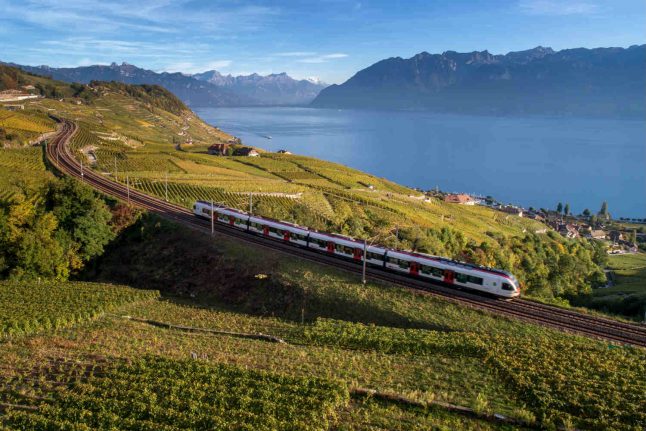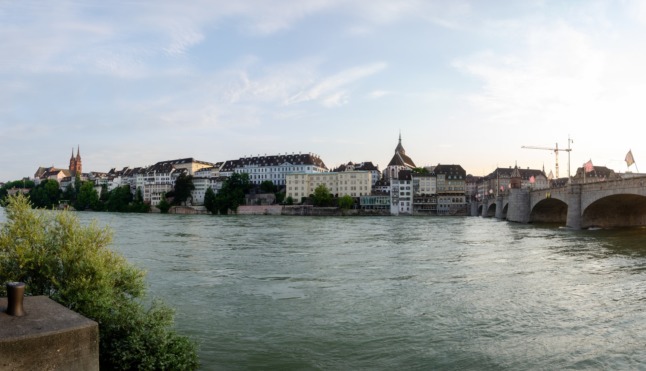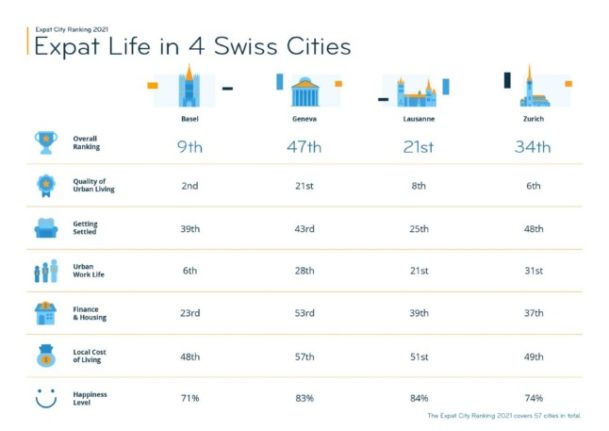On December 15th, a decade of work on the Léman Express train linking Geneva with surrounding towns and villages, will be complete.
The network is set to get tens of thousands of passengers off the road and will significantly reduce Geneva’s traffic congestion.
READ MORE: What you need to know about Geneva’s new traffic rules
How will the Léman Express cut traffic in Geneva?
According to the SBB, the network will include 40 new trains and will transport more than 50,000 people daily.
When it opens on December 15th, it will comprise 45 stations and 230 kilometres of track – extending beyond the Geneva canton borders into Vaud as well as France.
It will reduce road traffic in Geneva by 12 percent during peak hours.
Almost half a million vehicles – 446,700 to be exact – crossed the cantonal borders of Geneva each day in 2018, as estimated by the Canton of Geneva.

Image: Leman Express Courtesy SBB
The majority come from Haute-Savoie in neighbouring France (241,000), while 112,700 come from the canton of Vaud and a further 92,900 come from Gex-Ain in France.
The centrepiece of the network will be the link between Geneva and Haute-Savoie, from which nine out of ten of the almost 90,000 border workers make their daily journey by car.
The network is also expected to be significantly cheaper, with workers saving on car, fuel and parking costs.
While the majority will be work travellers, the SBB estimates a large proportion will also be students and holiday-makers.

The Geneva main station. Photo: FABRICE COFFRINI / AFP
How much will the Léman Express cost?
As reported in Swiss media outlet Le Temps, the cost of a monthly ticket is expected to be around CHF170 (€160), but will differ depending on the specific route.
While it may seem expensive when compared to other cities and regions, monthly parking and motorway tolls for workers in Geneva can be much more – before fuel and car maintenance costs are taken into account.
Hospital workers in Geneva, for instance, pay CHF250 per month on parking and tolls alone, meaning that in addition to saving time, the journey will be potentially thousands of francs/euros per year cheaper.
Traffic in Geneva
For residents of Geneva or just those who have made a visit, no you aren’t imagining it – the city’s traffic is the worst in Switzerland.
According to the Tom Tom Traffic Index, which ranks the world’s cities according to congestion and hours lost in traffic, Geneva is the worst in the country – around 25 places worse than second-placed Zurich.

Traffic in Geneva. Photo: FABRICE COFFRINI / AFP
Geneva even places lower than larger cities like Shanghai, Hamburg and Singapore – with Geneva losing 138 hours per year during peak hours on work days.
A decade in the making, more than a century in the planning
The rail network which has now become the Léman Express was first planned over a century ago, when the canton of Geneva and Swiss Federal Rail (SBB) agreed to expand the existing lines throughout the canton and into neighbouring France.
The demand for the network has only grown over the past century, particularly as the number of so-called frontaliers – Geneva workers who live in France – has climbed north of 100,000 people.
As reported in Swiss media outlet Le Temps, the goal is not only to reduce travel times but to create a broader metropolis which links Geneva’s surrounding towns and villages with the city.
Professor of Urban Development at the University of Geneva Laurent Matthey, told Le Temps that the network will create a sense of regional identity which spans cantonal and even national borders.
p.p1 {margin: 0.0px 0.0px 0.0px 0.0px; line-height: 14.0px; font: 12.0px Helvetica; min-height: 14.0px}
p.p2 {margin: 0.0px 0.0px 0.0px 0.0px; line-height: 14.0px; font: 12.0px Helvetica}
p.p3 {margin: 0.0px 0.0px 0.0px 0.0px; line-height: 14.0px; font: 12.0px Times; color: #0000e9}
p.p4 {margin: 0.0px 0.0px 0.0px 0.0px; line-height: 14.0px; font: 12.0px Times; color: #0000e9; -webkit-text-stroke: #0000e9}
span.s1 {text-decoration: underline ; font-kerning: none}
“This could certainly affirm a regional identity (around Geneva). The network will connect a number of centres economically, but also culturally,” he said.




 Please whitelist us to continue reading.
Please whitelist us to continue reading.
Member comments